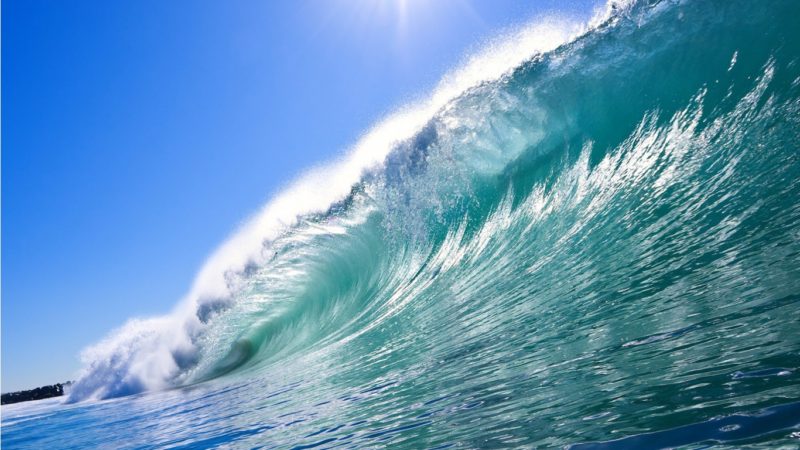A special Oceans Action Event at the UN Climate Change Conference in Marrakech (COP22) has brought together over 400 high-level participants from around the world to advance oceans and climate change issues and to pledge concrete actions in support of the objectives of Sustainable Development Goal number 14, which is to conserve and sustainably use the oceans, seas and marine resources.

The global ocean is fundamental to sustaining life on Earth. It is a major carbon sink; it absorbs heat, and produces half the oxygen we breathe. It sustains the lives and livelihoods of the coastal and island communities who call it home, and who rely on its bounty to meet their nutritional needs.
The important role oceans play was recognised at the 43rd Session of the UN’s Intergovernmental Panel on Climate Change (IPCC) in Nairobi, Kenya earlier this year, which decided to prepare a special, scientific report on climate change and the oceans.
But while oceans are key to mitigating climate change, a warming planet also places them, and the services they provide, at great risk. Climate variability and change, habitat degradation and ocean acidification all pose additional risks to the conservation and sustainable use of our oceans, and to the well-being of dependent coastal and island communities.
At Saturday’s event in Marrakech, the Food and Agriculture Organisation (FAO) of the United Nations, the World Bank and the African Development Bank (AfDB) announced the African Package for Climate-Resilient Ocean Economies. This ambitious package of technical and financial assistance will support ocean economies in Africa, and build greater resilience of coastal areas to climate change, tailoring approaches based on the countries’ specific priorities and objectives. The initiative will mobilise $500-900 million and implement programmes linked to climate change adaptation and mitigation over the period 2017-2020.
The Kingdom of Morocco announced its Blue Belt Initiative aimed at building the resilience of coastal communities and promoting sustainable fisheries and aquaculture in keeping with SDG14 expectations. Focus areas will include integrated coastal monitoring systems, sustainable fisheries and aquaculture throughout the entire value chain. Solutions for adaptation and contributions to curbing greenhouse gas are proposed as part of a priority roadmap for implementation. The initiative is supported by an investment plan and capacity building programme of $60 million over the period 2017-2020, building on the Blue Growth initiative launched at COP 21 in Paris.
COP22 Ocean Action partners released the Strategic Action Roadmap on Oceans and Climate: 2016 to 2021, which provides a vision for action regarding oceans and climate in the next five years, addressing six ocean and climate issue areas: the central role of oceans in regulating climate, mitigation, adaptation, displacement, financing, and capacity development.
“These ambitious programmes aimed at strengthening the resilience of African coastal communities are critical to meeting the challenges and opportunities of climate change – especially for vulnerable Small Island Development States,” according to Maria Helena Semedo, FAO’s Deputy Director-General for Natural Resources. “African coastal communities are some of the most affected by climate change. FAO is fully engaged and ready to be at the heart of these significant developments to work alongside countries and communities to reduce their vulnerabilities, build their resilience, and maximize opportunities emerging from climate change.”
“The World Bank is pleased to be a part of the international mobilisation of financing in response to the Mauritius Communiqué. The package presented today could make a significant contribution to meeting the adaptation needs of African countries as they develop their ocean economies. We plan to ramp up our own concessional financing in this area and look forward to working with our partners to increase the effectiveness of overall development assistance,” said Laura Tuck, World Bank Group Vice President for Sustainable Development.
Dr. Biliana Cicin-Sain, Global Ocean Forum, noted: “The Global Strategic Action Initiative on Oceans and Climate (involving Parties, IGOs, NGOs, academic institutions, private sector groups, and local authorities from all world regions) will implement actions identified in the Roadmap to safeguard the health of the oceans and the wellbeing of coastal and island populations, reporting on progress at the yearly COPs.”
The full day of discussions addressed numerous challenges faced by oceans under climate change scenarios. Sessions addressed challenges to food security and resilience, adaptation challenges and solutions, country mitigation efforts, access to finance and capacity building, and science solutions to moving forward to achieve SDG 14.
